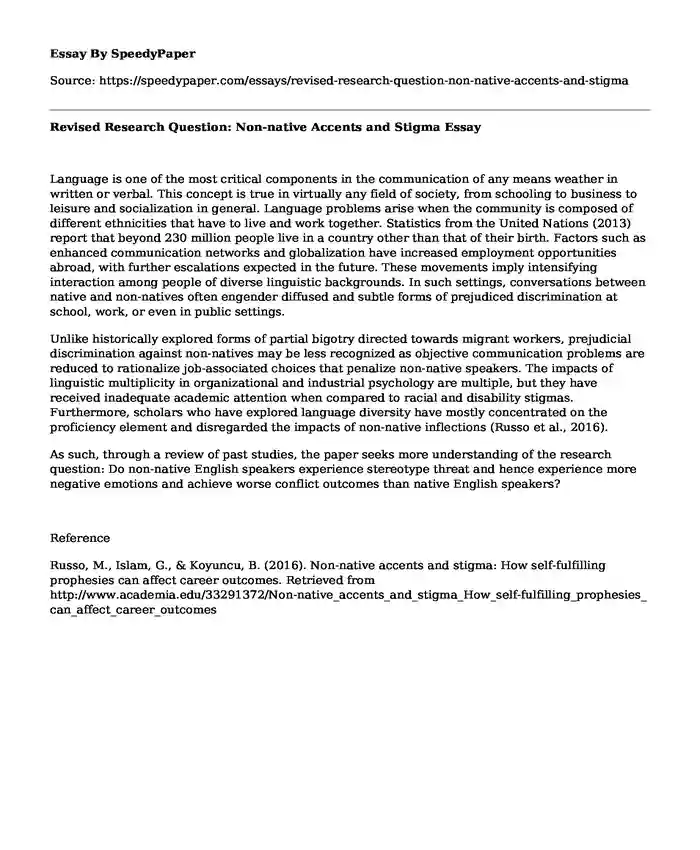
| Type of paper: | Essay |
| Categories: | English 101 Languages |
| Pages: | 2 |
| Wordcount: | 292 words |
Language is one of the most critical components in the communication of any means weather in written or verbal. This concept is true in virtually any field of society, from schooling to business to leisure and socialization in general. Language problems arise when the community is composed of different ethnicities that have to live and work together. Statistics from the United Nations (2013) report that beyond 230 million people live in a country other than that of their birth. Factors such as enhanced communication networks and globalization have increased employment opportunities abroad, with further escalations expected in the future. These movements imply intensifying interaction among people of diverse linguistic backgrounds. In such settings, conversations between native and non-natives often engender diffused and subtle forms of prejudiced discrimination at school, work, or even in public settings.
Unlike historically explored forms of partial bigotry directed towards migrant workers, prejudicial discrimination against non-natives may be less recognized as objective communication problems are reduced to rationalize job-associated choices that penalize non-native speakers. The impacts of linguistic multiplicity in organizational and industrial psychology are multiple, but they have received inadequate academic attention when compared to racial and disability stigmas. Furthermore, scholars who have explored language diversity have mostly concentrated on the proficiency element and disregarded the impacts of non-native inflections (Russo et al., 2016).
As such, through a review of past studies, the paper seeks more understanding of the research question: Do non-native English speakers experience stereotype threat and hence experience more negative emotions and achieve worse conflict outcomes than native English speakers?
Reference
Russo, M., Islam, G., & Koyuncu, B. (2016). Non-native accents and stigma: How self-fulfilling prophesies can affect career outcomes. Retrieved from http://www.academia.edu/33291372/Non-native_accents_and_stigma_How_self-fulfilling_prophesies_can_affect_career_outcomes
Cite this page
Revised Research Question: Non-native Accents and Stigma. (2022, Aug 30). Retrieved from https://speedypaper.net/essays/revised-research-question-non-native-accents-and-stigma
Request Removal
If you are the original author of this essay and no longer wish to have it published on the SpeedyPaper website, please click below to request its removal:
- Culture and Social Norms of the Ancient Greeks - Essay Example
- Essay Example: Software Engineering in 2025 and 2040
- Essay Sample on Rape Victimization
- Philosophy Essay Example: Indirect Realism and George Berkley's Idealism
- Free Essay on Business Plan Developing
- Why I Wrote The Yellow Wallpaper - Literary Essay Example for Free
- Essay Sample about Strategies and Solutions for Volkswagen's Unsustainable Project
Popular categories




